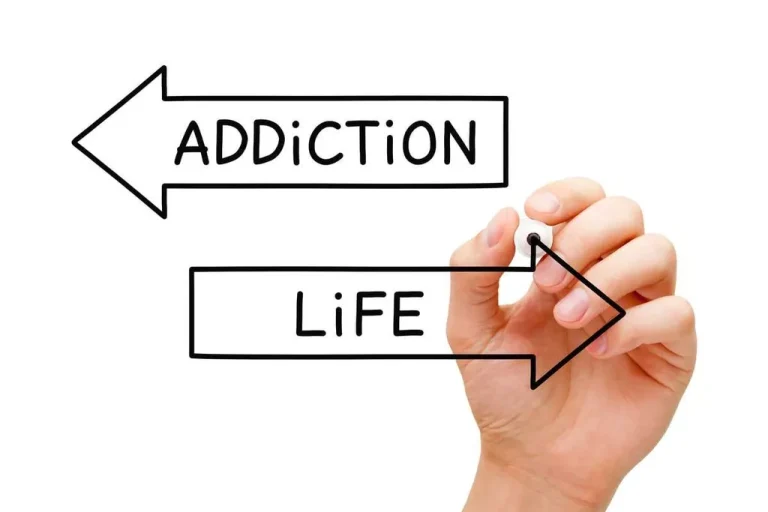
Depending on the severity of the problem, residential or inpatient treatment may be necessary. Once detox is completed and sobriety has begun, outpatient therapy can be beneficial. It is also recommended to utilize family or couples counseling to heal relationships as well. Personality disorders are mental health conditions involving pervasive and often destructive personality traits. Alcohol narcissism and alcoholism is sometimes used as a maladaptive coping mechanism to help people with NPD manage insecurities and emotional discomfort.

Support Systems and Group Therapy
Narcissism and alcoholism often intertwine, creating a complex and challenging dynamic. Both conditions can significantly impact a person's relationships, well-being, and overall quality =https://ecosoberhouse.com/ of life. Research indicates that individuals with narcissistic tendencies are more likely to develop alcohol-related problems and engage in excessive drinking behaviors. In addition to problem recognition, important factors that might maintain or change drinking behavior are expectancies and evaluations of problems. Through these therapeutic approaches, individuals can explore the underlying causes of their narcissistic tendencies and alcohol abuse. Therapists provide guidance, support, and tools to develop healthier coping mechanisms, enhance self-awareness, and improve interpersonal relationships.
The Cycle of Narcissism and Alcoholism

However, narcissism becomes an issue when it negatively affects aspects of a person’s life and relationships. Narcissism is a personality trait where people may feel a need for admiration, show a lack of empathy, or be self-involved. It is typical for people to display occasional narcissistic traits, but a pattern of narcissism could be part of narcissistic personality disorder (NPD), a mental health condition.
Where to Find a Support System

A 2020 review of research on narcissism and substance use disorders concludes that low self-esteem that requires external validation from others can increase the risk of substance use disorders. Both grandiose narcissism and vulnerable narcissism show a strong link to substance use disorders. A 2019 article in Frontiers in Psychiatry looks at the relationship between the problematic use of substances and narcissism, concluding that self-esteem plays a major role. As a result, these individuals require others to affirm their importance and value. Once they receive this affirmation, they experience grandiosity and may behave in an arrogant and entitled way. However, without affirmation, the same individual may feel depressed and ashamed.
- Experiences of abuse, inconsistent parenting, or excessive praise may contribute to narcissistic tendencies.
- In some cases, medication-assisted treatment may be prescribed as part of the overall treatment plan for alcoholic narcissism 4.
- AUD can range from mild to severe, depending on the number of symptoms present.
- It can help them learn ways to develop empathy for others, assess their capabilities realistically, and improve their ability to regulate their emotions.
Thus it seems that more frequent severe, acute intoxication makes a decisive contribution to the Alcoholics Anonymous high prevalence of alcohol-related aggression in alcohol-dependent individuals. This approach recognizes that the person is dealing with both a mental health disorder and a substance use disorder simultaneously, such as in the case of alcoholic narcissists. Understanding alcohol and its effects is crucial in managing alcohol-related problems, alcohol abuse, and alcohol withdrawal in these individuals.
- However, when they do co-occur, it can lead to a cycle of destructive behaviors.
- NPD is characterized by a persistent pattern of grandiosity and need for admiration, while AUD involves a problematic pattern of alcohol use leading to significant impairment.
- It found that individuals with grandiose narcissism have more friends and followers, post more often, and spend more time on social media than other people.
- People with narcissism may have difficulty recognizing or accepting when they lose control of their drinking.
- They may struggle with jealousy, have a sense of entitlement, and display manipulative behaviors.
- Traits like narcissism and personality disorders like NPD are long-standing.
- Certain genetic variations and neurochemical imbalances may increase the vulnerability to developing these conditions.
- Taking responsibility for their actions can be a significant challenge for those with alcoholic narcissism 2.
- Our Medical Affairs Team is a dedicated group of medical professionals with diverse and extensive clinical experience who actively contribute to the development of our content, products, and services.
Antidepressants or mood stabilizers might be used to address co-occurring mental health issues often present in narcissistic individuals with alcohol use disorder. Knowledge of the origin and treatment of alcohol-related aggression remains insufficient, despite the frequency of such aggression. Further studies are needed in order to clarify why some people become aggressive when under the influence of alcohol and others do not. For example, there is evidence that high levels of impulsiveness (24, 25) and low stress tolerance (26, 27) can reinforce the inclination to behave aggressively when under the influence of alcohol.





